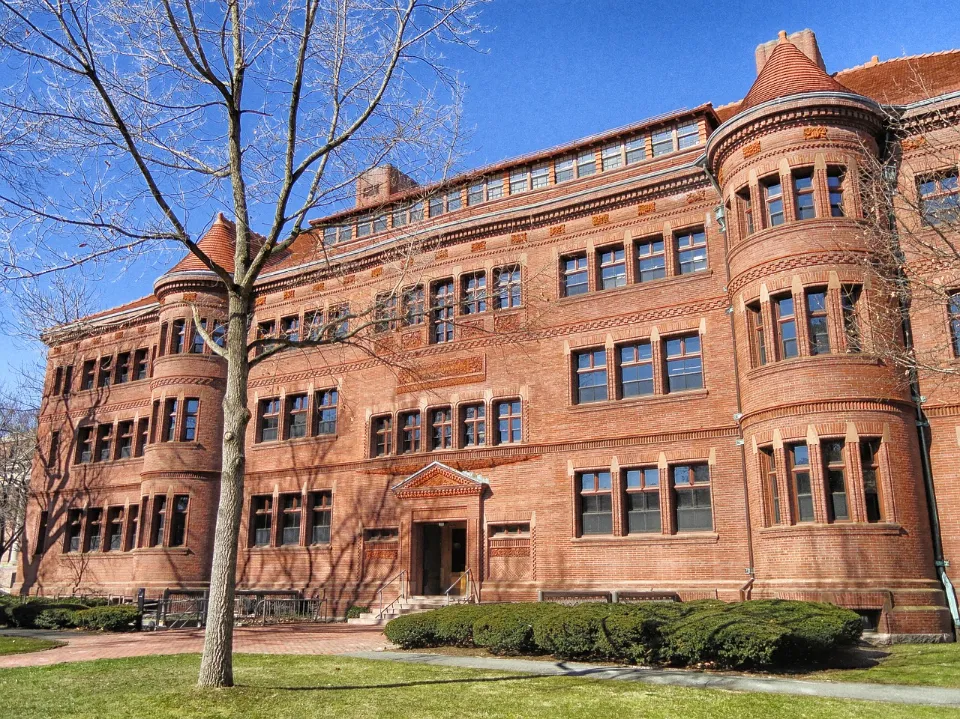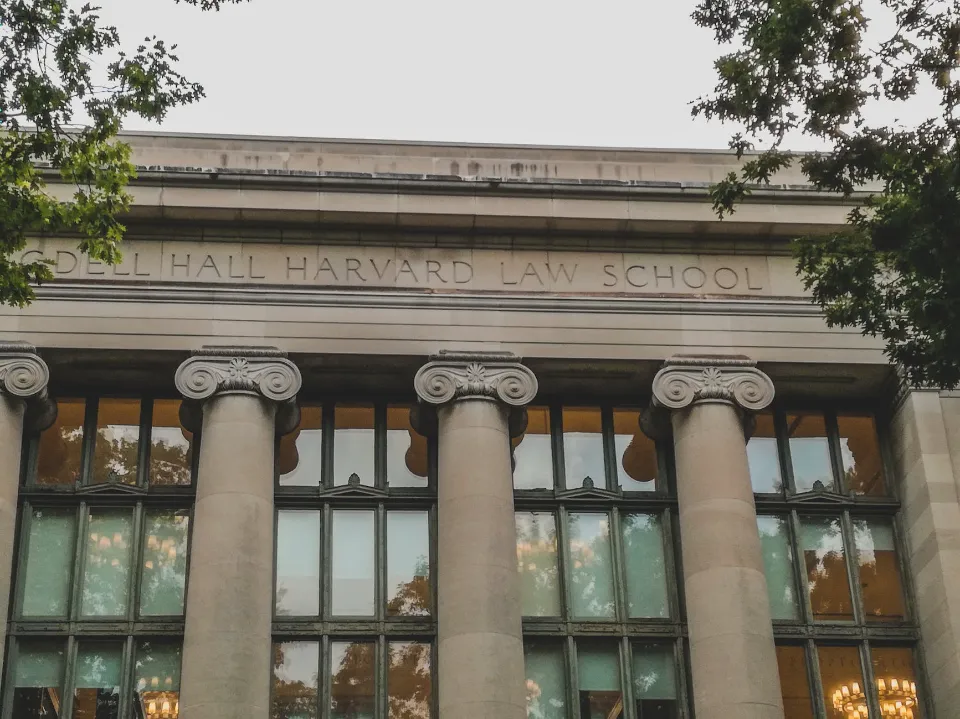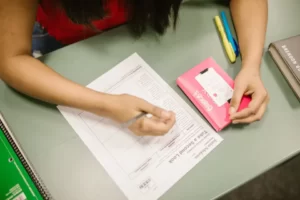
Can You Transfer to Harvard from a Community College? How?
Everything you require to know about transferring your community college credits or degree to Harvard University will be covered below.
Are you one of the many applicants who submitted their applications to Harvard while still in high school but weren’t selected for the following year’s class? The good news is that you still have time to transfer from a community college to Harvard—that wasn’t your only option!
But doing so necessitates understanding how to succeed in community college. I’ll demonstrate what you must do in the section below.
Can You Transfer to Harvard from a Community College?
Community college students are among those admitted to these elite universities each year, despite the fact that Harvard, Yale, Princeton, and Dartmouth accepts fewer transfers overall (due to the constrained number of transfer seats available).
In fact, Princeton, which had not accepted any transfers in many years, reopened its transfer program in 2018 with a focus on community college students.
There were 13 students in their first transfer class, including individuals from community colleges in Florida’s Miami Dade College, California’s Fresno City College, and New York’s Tompkins Cortland Community College.
The relaunch of Princeton is consistent with a trend at prestigious private universities. They are beginning to take note of the distinctive contributions you might make in the classroom and to the larger campus community as a former community college student.

Can You Transfer to Ivy League from Community College?
Yes, Ivy League schools will accept deserving transfer students from community colleges. Whether or not applicants have their associate degrees in hand, they can still be accepted as transfer students at Ivy League institutions so long as their college applications meet or even exceed the admissions requirements.
In addition to Cornell, a lot of transfers, including those from community colleges, are accepted at the University of Pennsylvania and Brown Universities.
Why Community College Transfer to Harvard University?
Community college and university undergraduate programs give students a wealth of knowledge to use in their careers, whether they are writing in APA or MLA style or perhaps a casual blog post like this one.
As a community college transfer to Harvard, you’ll gain an edge for the most selective positions in your field. The college degree and career preparation you’ll receive should more than makeup for any student loan debt you accrued along the way, according to current Harvard Alumni.
You most likely don’t need a calculator to figure out how much money you’ll save by transferring to Harvard in addition to receiving a top-notch education. You can save almost 40% on your Harvard degree by transferring college credits.
Less financial aid, student loans, and debt repayments, later on, are the results of this. Those of you who are continuing your education to earn a graduate degree will undoubtedly benefit the most from these savings.
Preparing to Community College Transfer to Harvard University

You’ll need to start getting ready to transfer from community college to Harvard as soon as you enroll in your first community college freshman class if you want to turn the tables from high school. You will perform better in community college if you start preparing earlier. Check out this transfer guide to learn how to best prepare while attending community college for two years.
It’s much simpler to say than to do what you’ll need to transfer from community college to Harvard. With some sound research skills, most students will discover that they need to achieve the following at community college:
- Become Your Community College’s Top Student
- Retake The SATs To Score Above The 95th Percentile
- Write An Outstanding Transfer Application
The admissions committee will see that you are capable of transferring from a community college to Harvard in two ways if you achieve academic excellence.
First off, excelling academically demonstrates your readiness for a demanding, superior education, such as the one Harvard University is renowned for. Second, it demonstrates that you’ll do well in college classes with other outstanding students from local and distant high schools.
How to Transfer to Harvard University from a Community College?
Through the university’s standard transfer application, students can transfer from community colleges to Harvard University. Harvard University, on the other hand, is extremely selective in who it accepts as transfer students, so community college students must be outstanding in their fields of study to be accepted.
To improve their chances of being accepted to the University, students from community colleges are advised to maintain strong academic standing and to be among the school’s top students. To achieve a score above the 95th percentile, students must continuously retake the ACT or SAT exam.

If accepted, transfer students must complete at least two years of full-time study at Harvard University after having already completed one year of college at another institution. Students also need to prepare the following additional documents for their transfer applications:
- College Transcripts
- College Report
- Letters of Recommendation
- Official High School Transcript
- Personal Essay
Is It Possible to Take the SAT Or ACT While Attending Community College?
Yes, you can. College students have access to standardized tests. According to the College Board and ACT, Inc., even students who have not completed high school are allowed to take standardized tests., which established and administer both the SAT and ACT.
Prior to or following graduation, community college students may take the SAT or ACT. Don’t assume that only high school sophomores and juniors can take standardized tests to meet the requirements for admission to colleges.
Anyone older than sixteen years old may take the SAT or ACT. Just remember that as of right now, federal restrictions prohibit anyone under the age of 13 from signing up for or taking the SAT when it comes to very young students who want to take standardized tests.
Do Colleges Require Transferees to Submit Test Scores?
As of the time of writing, many American colleges and universities give transfer applicants the option of submitting their standardized test results or not. Among them are colleges from the Ivy League.

Even though some selective colleges don’t require tests, sending in your SAT or ACT scores may increase your chances of getting accepted.
In today’s higher education institutions, test-optional admissions policies are common. They include prestigious universities that previously only admitted candidates with excellent test scores.
If you’re transferring to an Ivy League university, you can choose to reveal your exam results or keep them a secret. This is so that students do not currently have to take tests at any Ivy League institutions.
It is still a good idea to submit your high standardized test score if you are particularly happy with it. This is due to the fact that SAT or ACT scores will be considered by Ivy League admissions officers if they are submitted.
On the other hand, transfer applicants who choose not to submit theirs won’t be penalized during the admissions process. Check out this application checklist for transferees applying to Ivy League schools:
Brown University
- Application fee of $75 or a fee waiver
- Common App
- Official copy of high school transcript
- Official copy of college transcript
- College report
- Mid-term report
- Two evaluations from faculty members who have taught the applicant at the current college (one may be replaced with a recommendation from a teacher from the applicant’s senior year of high school)
- SAT or ACT score: optional

Cornell University
- Application fee of $80 or a fee waiver
- Common App
- Official copy of high school transcript
- Official copy of college transcript
- Academic evaluation
- College report
- Mid-term report
- Cornell University transfer questions
- Writing supplement
- SAT or ACT score: optional
Columbia University
- Application fee of $85 or a fee waiver
- Coalition App (Common App is for first-year applicants only)
- Coalition App transfer report
- Coalition App curriculum report
- Official copy of high school transcript
- Official copy of college transcript
- Two college academic recommendations
- SAT or ACT score: optional
Dartmouth College
- Application fee of $90 or a fee waiver
- Application through Dartmouth College’s very own transfer application
- Official copy of high school transcript
- Official copy of college transcript
- College report
- Two evaluations from college instructors
- Two essays
- SAT or ACT score: optional
Harvard University
- Application fee of $75 fee or a fee waiver
- Coalition App or Common App
- Coalition App or Common App writing supplement
- Harvard College Questions
- Official copy of high school transcript
- Official copy of college transcript
- College report (or Dean’s report or Registrar’s report)
- SAT or ACT score: optional (submission is strongly recommended)
Princeton University
- Application fee of $70 fee or a fee waiver
- Coalition App or Common App
- Princeton’s transfer supplement (submitted via the Coalition App or Common App website)
- Official copy of high school transcript
- Official copy of college transcript
- College report
- Mid-term report
- Graded written paper
- Two academic recommendations (at least one from a college instructor)
- SAT or ACT score: optional
University of Pennsylvania
- Application fee of $75 or a fee waiver
- Common App or Coalition App
- Official copy of high school transcript
- Official copy of college transcript
- College report
- Mid-term report
- Two letters of recommendation
- Penn-specific essay
- SAT or ACT score: optional
Yale University
- Application fee of $80 or a fee waiver
- Common App or Coalition App
- Official copy of high school transcript
- Official copy of college transcript
- College report
- Mid-term report
- Two evaluations from college faculty members or teaching assistants
- Yale-specific questions
- SAT or ACT score: optional
Remember that the Ivy Leagues and other schools reserve the right to reimpose their SAT or ACT requirements at any time. Or they could change their test-optional admissions policy to a test-blind or text-flexible one.
Because of this potential, be sure to visit an Ivy League website and review the requirements transfer applicants must meet before submitting your application.
Conclusion: Before You Transfer to An Ivy League School
Just because you are enrolled in or have graduated from a community college does not mean that the Ivy League will not consider your application.
You might be on your way to receiving a bachelor’s degree from a prestigious university if your college GPA and other admissions requirements meet or even exceed expectations.
As long as you chart a clear academic path and show that you are academically prepared, transferring from a community college to an Ivy League university is unquestionably possible. Admissions officers will view your background as a strength rather than a weakness.
FAQs
Is It Hard to Transfer to Harvard from a Community College?
A transfer student may enroll at Harvard, yes. They accept very few, however, and are exceptionally selective about who they do accept. What is this? Every academic year, in the fall, the application for transfer to Harvard becomes available.
What GPA Do You Need to Transfer to Harvard?
However, in our experience working with Harvard applicants, you will need a 3.9 or better. This is not to say that you have no chance if your GPA is below that level, but you will have the best chance if your GPA is between 3.9 and 4.0.
Which Ivy League is Easiest to Transfer Into?
That could raise some issues. It all depends on which has the highest transfer acceptance rates. As stated earlier your top best choices would be Cornell, UPenn, or Dartmouth.


